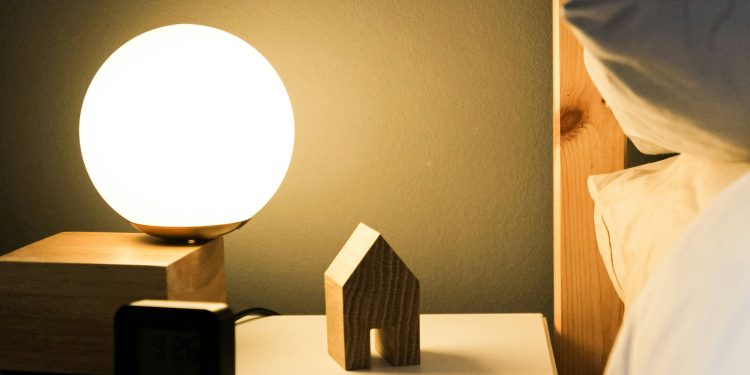Like it or not, the future of sleep is being programmed by artificial intelligence. In 2025, AI isn’t just tracking your sleep; it’s basically curating it, with the help of hyper-personalized solutions that adapt to your biology (your body), habits, and even your dreams (yes, your dreams).
In today’s world, there are self-adjusting smart beds that learn your tossing patterns, neural headbands that stimulate deep sleep with sound waves, and smart watches that track when you snore. The sleep tech revolution is here and it is being powered by code.
In this article, we’ll look at how AI is transforming sleep from a passive biological process into an optimized, data-driven experience, with the added thoughts on whether we should embrace it or question its limits.

- Your Bed is Now Smarter Than You
There are now AI-powered mattresses (like Eight Sleep’s Pod 4) which use biometric sensors to track heart rate, breathing, and movement. This mattress then automatically adjusts temperature and firmness mid-sleep to prevent sleep disruptions.
The Downside: These beds cost up to $3,000, raising questions about accessibility.
The Benefits: Studies show temperature fluctuations can reduce deep sleep by 30%. A problem AI fixes in real time.
- The Rise of the “Sleep Coach” Chatbot
Apps like SleepScore and Whoop Coach use OpenAI’s language models to analyze your sleep data and deliver conversational advice (e.g., “Skip caffeinated drinks after 2 PM based on your REM patterns”).
The Downside: Some users report over-reliance, with 23% admitting they ignore their body’s cues in favor of AI recommendations.
The irony with this product, however, is that we’re outsourcing intuition to machines to solve a problem caused by overusing machines.
- Your Sleep Stages Are Now Neural Hacked
EEG headbands like Elemind use bone conduction to play sounds synchronized with your brainwaves, deepening slow-wave sleep by up to 15%. In fact, a 2025 study found AI-tailored soundscapes “outperform generic white noise” for insomnia relief.
With this development, startups are experimenting with real-time dream modulation (try to imagine AI extending lucid dreams).
- AI vs. Sleep Apnea
FDA-cleared apps like ResMed’s myAir are now able to detect apnea through Apple Watch sensors, removing the need for lab tests.
There’s a controversy with this invention though. Some doctors are warning that AI may over-diagnose mild cases, pushing unnecessary CPAP use.
The Big Question: Should You Let AI Run Your Sleep?
We’ve reached a rather peculiar crossroads in human history where artificial intelligence knows more about our sleep patterns than we do ourselves. The question isn’t can AI optimize our rest (the data already proves it can) but rather, should we let it?
As with any technological revolution, this one comes with both remarkable promises and troubling implications that demand our careful consideration.
There’s no denying the transformative potential of AI sleep technology:
- It Catches What We Miss
The human body is remarkably bad at self-diagnosing sleep issues. Those “micro-wakeups” that shatter your sleep cycle without fully rousing you? AI detects every single one. Studies show wearables like the Oura Ring can identify up to 87% of sleep disturbances that go unnoticed by the sleeper themselves.
- The Democratization of Sleep Science
Gone are the days when comprehensive sleep analysis required expensive lab studies. Now, a $300 wearable can provide insights that were once the exclusive domain of sleep clinics charging $5,000 per overnight study. This represents a seismic shift in healthcare accessibility.
- Real-Time, Adaptive Solutions
Unlike static solutions (earplugs, blackout curtains), AI systems learn and adjust. The Eight Sleep mattress doesn’t just track your sleep, it actively cools or warms your bed in response to your biometric signals, with some users reporting 45 minutes more deep sleep per night.

The Dark Side of Digital Slumber
For for all its benefits, the AI sleep revolution raises profound questions:
- The Privacy Debate
Your sleep data (including breathing patterns, heart rate variability, and even predicted dream cycles) is incredibly valuable. A 2025 FTC report revealed that 73% of sleep apps share data with third parties, from insurance companies to targeted advertisers. That midnight restlessness could mean higher health premiums tomorrow.
- The Autonomy Question
When AI starts making decisions about your sleep (telling you when to go to bed, overriding your fatigue signals, or even administering sleep-inducing sound frequencies) who’s really in control? Psychologists have warned of a new form of dependency, where we lose touch with our body’s natural rhythms.
- The Perfection Trap
The rise of “orthosomnia” (an unhealthy obsession with perfect sleep metrics) shows how quantification can backfire. When your AI sleep coach gives you a “poor” score despite feeling rested, do you trust the algorithm or your own refreshed body?
On Finding Balance in the Algorithmic Age
The solution lies in mindfully integrating these products:
- Using AI as a consultant ie letting it inform but not override your intuition.
- Demanding transparency by choosing devices with clear data policies and local processing.
- Scheduling tech-free nights to regularly reconnect with your body’s unaugmented rhythms.
From what you’ve read, would you trust an AI to optimise your sleep? Or do you think this is technology going too far? Let me know your thoughts in the comment box below.
Don’t forget to subscribe to Federal Character newsletter too!

















